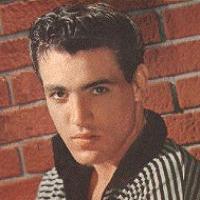 Jimmie Rodgers was a legend, one of the architects of country music. Born in 1897, Rodgers, known as the Singing Brakeman, made dozens of recordings and was a huge influence on generations of country singers. He died in 1933.
Jimmie Rodgers was a legend, one of the architects of country music. Born in 1897, Rodgers, known as the Singing Brakeman, made dozens of recordings and was a huge influence on generations of country singers. He died in 1933.That’s not who this is about. This about Jimmie Rodgers who was born in 1933, the year his namesake died. This other Jimmie Rodgers has been described as a “pop singer,” which isn’t totally inaccurate, but really his music was a kind of folk-rock, and that was a musical generation before the term existed.
And I don’t know why he called himself Jimmie Rodgers, even if it was his name. Imagine a young new recording artist calling himself “John Lennon.” Uh huh…
The core of this collection was a Canada-only release on Quality Records, called Greatest Hits. That was 10 tracks. The rest come from a CD and from 45s. I’m kind of impressed with the collection I put together actually. I’ve managed to procure 19 of his 25 top 100 singles. Not bad.
Jimmie Rodgers:
• Honeycomb – One of those tunes that go here and there and up and down and all around, and it’s that tune undoubtedly that propelled this song to number one in the fall of 1957. Imagine describing your wife as a “hank o’hair and piece o’bone.” The song was used, with new words obviously, for Post Honeycomb commercials, in the old days.
• Kisses Sweeter Than Wine – This tale of the romance of the century was a hit in the winter of 1957 / 1958. Some people like dry wine…
• Oh Oh I’m Falling In Love Again – The tune is Honeycomb redux. The words are kind of Kisses Sweeter Than Wine redux. This is from the winter of 1958.
• Woman From Liberia – Jimmie Rodgers’ music often had the aura of authentic folk music, and it was given a boost by references to exotic places, Liberia in this case. The song is a metaphor – he is thirsty, the woman has water, he wants to know the source. And it’s all given over in that chripy Rodgers style.
• The Wreck Of The “John B” – A hit of sorts in the fall of 1960, and a hit in the UK for Lonnie Donegan earlier in the same year (as I Want To Go Home), it was The Beach Boys who put this in the spotlight in 1966 (Sloop John B).
• Bimbombey – Another one of those songs about a far off place. Of course the exotic nature of the location renders the girl just as exotic. From the winter of 1958 / 1959.
• Tucumcari – A soldier comes home to his girl, little by little, mile by mile, finds her with, what else, someone else, and keeps going. From the fall of 1959. Very stoic this whole thing, and I think it’s more effective for that. Of course, it does have a happy ending…
• Just A Closer Walk With Thee – I don’t know what it is about this spiritual that attracts pop singers. Joan Baez recorded it; there were others. From the spring of 1960.
• Are You Really Mine – Jimmie can’t believe his luck. There is a possessiveness in songs like this that’s just a little bit unsettling. From the autumn of 1958.
• Secretly – Jimmie brings his sunshine to the tale of a clandestine affair. It’s not so clear why they have to meet “secretly;” one can only guess. But there’s a feeling that the situation for them is temporary. “Till we have the right…” From the spring of 1958.
• Wonderful You – Vocal chorus on this, subdued background, the way his voice dips on “wonder,” there’s a Harry Belafonte feeling on this. Also slightly reminiscent of, believe it or not, The Little Drummer Boy by The Harry Simeone Chorale. This was the B side of Ring Ling A Lario, and was a hit in the summer of 1959.
• Ring Ling A Lario – A man recalls his history of romantic entanglements, and how he got out of every one of them – until he finally got caught, of course. From the summer of 1959.
• TLC (Tender Love And Care) – A song of undying love. Another major chorus on this, male and female. It seems that he was modifying his style to fit in more with top 40 trends. From the winter of 1960.
• English Country Garden – What a melody, written of course by Percy Grainger. It’s one of those tunes that everyone knows, but nobody knows from where. A UK hit in the summer of 1962.
• The Long Hot Summer – I wonder what it would like to live in a place with a long hot summer. This uncharacteristic orchestrated love ballad was the B side of Oh Oh I’m Falling In Love Again, and a hit in the spring of 1958.
• Make Me A Miracle – This was the B side of Secretly. This seems to be a love song, you have the power over me to determine who and what I am. I wonder how many relationships have been scuttled by the dysfunctional attitudes romanticized in songs like this. From the spring of 1958.
• The Wizard – This supernatural tale was the B side of Are You Really Mine. It was a hit in the fall of 1958.
• I’m Never Gonna Tell – Cute. You don’t tell on me and I won’t tell on you. What’s notable about this song is that Jimmie lets his guard down, and his New York accent comes through loud and clear on “tell.” From the spring of 1959.
• Waltzing Matilda – The top 40 version of this ultra-pop song doesn’t lose any of its cuteness, unfortunately. But it does put Australia into Rodgers’ repertoire of foreign places, along with Liberia, Tucumcary, Bimbombey etc. From the winter of 1960, this was the B side of TLC (Tender Love And Care).
• It’s Over – Jimmie Rodgers enters the modern era. This is a moving ballad. From the spring of 1966. Covered by Mason Williams
• Child Of Clay – The story of a misfit, a child who got lost in the family rat race. The understated approach makes up for the heavy handed message. This was from the fall of 1967, and it was the last time that Jimmie Rodgers was on the charts. Just in time, because I kind of remember hearing this.
 So here’s an example of the “emergency CD.”
So here’s an example of the “emergency CD.” Ok so these guys got together in Harlem, back in 1956 or so, and said what can we call ourselves to guarantee that no one will remember us in future years. People remember The Drifters, The Coasters, but not the Dubs; The Penguins, ok, The Five Satins, sure, who doesn’t know I’ll Remember (In The Still Of The Night), even The Danleers have a chance, but nobody remembers The Dubs. And why would they? The Dubs? Really.
Ok so these guys got together in Harlem, back in 1956 or so, and said what can we call ourselves to guarantee that no one will remember us in future years. People remember The Drifters, The Coasters, but not the Dubs; The Penguins, ok, The Five Satins, sure, who doesn’t know I’ll Remember (In The Still Of The Night), even The Danleers have a chance, but nobody remembers The Dubs. And why would they? The Dubs? Really. I am out of my comfort zone here, so let’s just let Stevie have the last word:
I am out of my comfort zone here, so let’s just let Stevie have the last word: I was not quite 2 years old when Buddy Holly died, and I don’t think I read the paper that day, so I was unaware of that bit of news. It was, according to Don McLean, “the day the music died.”
I was not quite 2 years old when Buddy Holly died, and I don’t think I read the paper that day, so I was unaware of that bit of news. It was, according to Don McLean, “the day the music died.” doing Little Richard, and his Little Richard is a lot more mellow. The riff is borrowed from The Everlys’ Bird Dog.
doing Little Richard, and his Little Richard is a lot more mellow. The riff is borrowed from The Everlys’ Bird Dog. • Moondreams – This is real smooth, with strings. It was the B side of True Love Ways in the UK.
• Moondreams – This is real smooth, with strings. It was the B side of True Love Ways in the UK.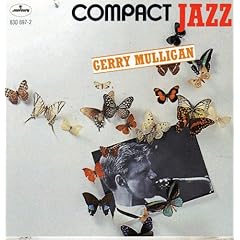 In a previous life I was a jazz fan. I knew jazz, understood the language, knew the history. I could discourse for hours on the merits of Miles Davis Prestige albums, or on Lester Young’s strengths as a tenor sax player. I’d go to the library and seek out CDs, not old Frank Zappa recordings or obscure Frankie Valli & The Four Seasons material, but previously unreleased live performances by Art Pepper and Art Blakey. My preference was for post bop or for West Coast cool jazz, like these Mulligan performances, or Chet Baker, or Stan Getz, and I didn’t apologize.
In a previous life I was a jazz fan. I knew jazz, understood the language, knew the history. I could discourse for hours on the merits of Miles Davis Prestige albums, or on Lester Young’s strengths as a tenor sax player. I’d go to the library and seek out CDs, not old Frank Zappa recordings or obscure Frankie Valli & The Four Seasons material, but previously unreleased live performances by Art Pepper and Art Blakey. My preference was for post bop or for West Coast cool jazz, like these Mulligan performances, or Chet Baker, or Stan Getz, and I didn’t apologize.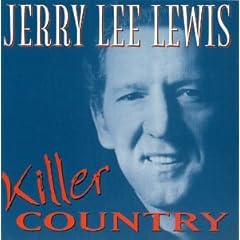
 Well, Paul Anka was Canadian, so that’s worth something. He didn’t stay in Canada, of course, neither did The Diamonds or The Crew Cuts, and neither did Joni Mitchell or Neil Young, no way he could have become who he became had he stayed. But he was from Ottawa, which is the capital, and it’s a nice city, about 2 hours drive from here. Ottawa, I’d go. Capital Hill, Spark Street mall, National Gallery etc.
Well, Paul Anka was Canadian, so that’s worth something. He didn’t stay in Canada, of course, neither did The Diamonds or The Crew Cuts, and neither did Joni Mitchell or Neil Young, no way he could have become who he became had he stayed. But he was from Ottawa, which is the capital, and it’s a nice city, about 2 hours drive from here. Ottawa, I’d go. Capital Hill, Spark Street mall, National Gallery etc. before he broke huge, that was in the winter of 1974. It was released on the Fame label, and I think my version is a rerecording for RCA, but I can’t 100% tell.
before he broke huge, that was in the winter of 1974. It was released on the Fame label, and I think my version is a rerecording for RCA, but I can’t 100% tell. ...AKA Bobby “Blue” Bland. If the number of chart singles measures success, then Bland was the single most successful blues artist. He had 37 songs on the Billboard top 100 between 1957 and 1974. B.B. King had 34 up till 1975. Slim Harpo had 2, Muddy Waters had 0. And Bland was pure blues, out of step with everything else around him on the top 100. Something about him appealed to radio programmers and record buyers.
...AKA Bobby “Blue” Bland. If the number of chart singles measures success, then Bland was the single most successful blues artist. He had 37 songs on the Billboard top 100 between 1957 and 1974. B.B. King had 34 up till 1975. Slim Harpo had 2, Muddy Waters had 0. And Bland was pure blues, out of step with everything else around him on the top 100. Something about him appealed to radio programmers and record buyers. The astute reader will notice that I sneak in non-chart artists at random intervals. There is no magic to this. It’s how my collection is arranged.
The astute reader will notice that I sneak in non-chart artists at random intervals. There is no magic to this. It’s how my collection is arranged.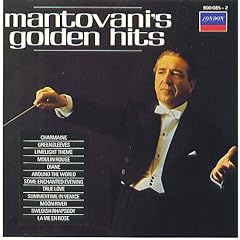 This wasn’t just elevator music; this was elevator music in the poshest hotel.
This wasn’t just elevator music; this was elevator music in the poshest hotel.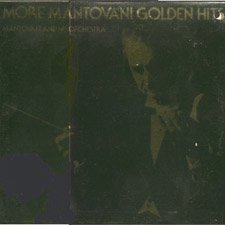
 I got my entire Debbie Reynolds collection from the original singles; of course my entire collection is 2 tracks.
I got my entire Debbie Reynolds collection from the original singles; of course my entire collection is 2 tracks.
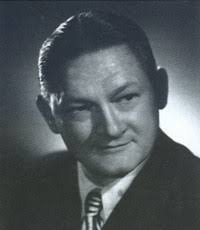 Young had two hits on the pop charts, more on the Adult Contemporary charts. I have one, and I got that straight off the 45.
Young had two hits on the pop charts, more on the Adult Contemporary charts. I have one, and I got that straight off the 45.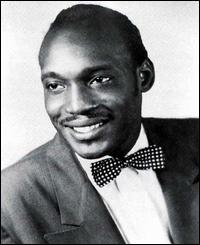 The truth is that I’ve never come across a Chuck Willis collection. So I don’t have one really. I put together my own collection, the tracks all taken from Atlantic Rhythm And Blues 1947 – 1974. That nets me 4 out of 5 of his hits, which isn’t all that bad, considering.
The truth is that I’ve never come across a Chuck Willis collection. So I don’t have one really. I put together my own collection, the tracks all taken from Atlantic Rhythm And Blues 1947 – 1974. That nets me 4 out of 5 of his hits, which isn’t all that bad, considering. Growing up when I did, I picked up the old 50s rock and roll by hearsay and nostalgia. There was American Graffiti, there were spinoff albums, there were rock and roll revival concerts (not that I went to any), there were “graffiti weekends” on the radio, there were “best hits of all time” weekends, usually on Labour Day. And so I got to hear the originals: Little Richard, Chuck Berry, Buddy Holly, Danny & The Juniors, Bill Haley & His Comets.
Growing up when I did, I picked up the old 50s rock and roll by hearsay and nostalgia. There was American Graffiti, there were spinoff albums, there were rock and roll revival concerts (not that I went to any), there were “graffiti weekends” on the radio, there were “best hits of all time” weekends, usually on Labour Day. And so I got to hear the originals: Little Richard, Chuck Berry, Buddy Holly, Danny & The Juniors, Bill Haley & His Comets. This is one of those releases that make you wonder how legit it is. To begin with, it has two titles: Best of Lee Andrews & The Hearts, and Teardrops. That isn’t so unusual. So what else? Well the label: MCR Productions. And it’s licensed from Red Dog Express. And it was made in Holland. Lee Andrews & The Hearts recorded 2 hits for Chess, and 1 for United Artists. They are on here, all. There are no acknowledgments of the original labels. It all looks very suspicious. This kind of thing is normal.
This is one of those releases that make you wonder how legit it is. To begin with, it has two titles: Best of Lee Andrews & The Hearts, and Teardrops. That isn’t so unusual. So what else? Well the label: MCR Productions. And it’s licensed from Red Dog Express. And it was made in Holland. Lee Andrews & The Hearts recorded 2 hits for Chess, and 1 for United Artists. They are on here, all. There are no acknowledgments of the original labels. It all looks very suspicious. This kind of thing is normal. I dunno man. This guy recorded for RCA, and he had 23 hits between 1957 and 1966, 13 top 20 singles on the UK chart between 1960 and 1969, though he died in 1964. RCA put out 3 “Best Of” albums, and they couldn’t manage to fit all 23 songs on 3 LPs. Forget the UK hits.
I dunno man. This guy recorded for RCA, and he had 23 hits between 1957 and 1966, 13 top 20 singles on the UK chart between 1960 and 1969, though he died in 1964. RCA put out 3 “Best Of” albums, and they couldn’t manage to fit all 23 songs on 3 LPs. Forget the UK hits. spring of 1963.
spring of 1963. • I’m Gonna Change Everything – He’s gonna get rid of all traces of her. From the fall of 1962.
• I’m Gonna Change Everything – He’s gonna get rid of all traces of her. From the fall of 1962.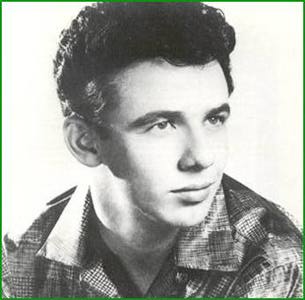 Dale Hawkins made many records, but only 4 of them made the pop charts. And I only have one of them. And I don’t remember where I got it.
Dale Hawkins made many records, but only 4 of them made the pop charts. And I only have one of them. And I don’t remember where I got it.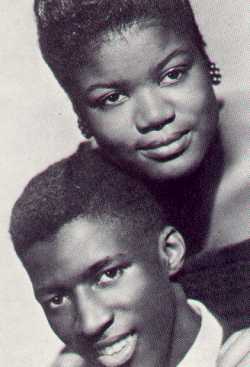 I thought they were the 50s version of Sam & Dave, until I looked them up on YouTube, and now I realize that Johnnie was a girl. Perhaps they were the 50s version of Marvin Gaye & Tammi Terrell.
I thought they were the 50s version of Sam & Dave, until I looked them up on YouTube, and now I realize that Johnnie was a girl. Perhaps they were the 50s version of Marvin Gaye & Tammi Terrell. He is considered to have been a rockabilly … legend is a bit strong, but something like that. He had 4 hits in the late 50s, one of which was called Half Breed and was not the Cher song.
He is considered to have been a rockabilly … legend is a bit strong, but something like that. He had 4 hits in the late 50s, one of which was called Half Breed and was not the Cher song.
